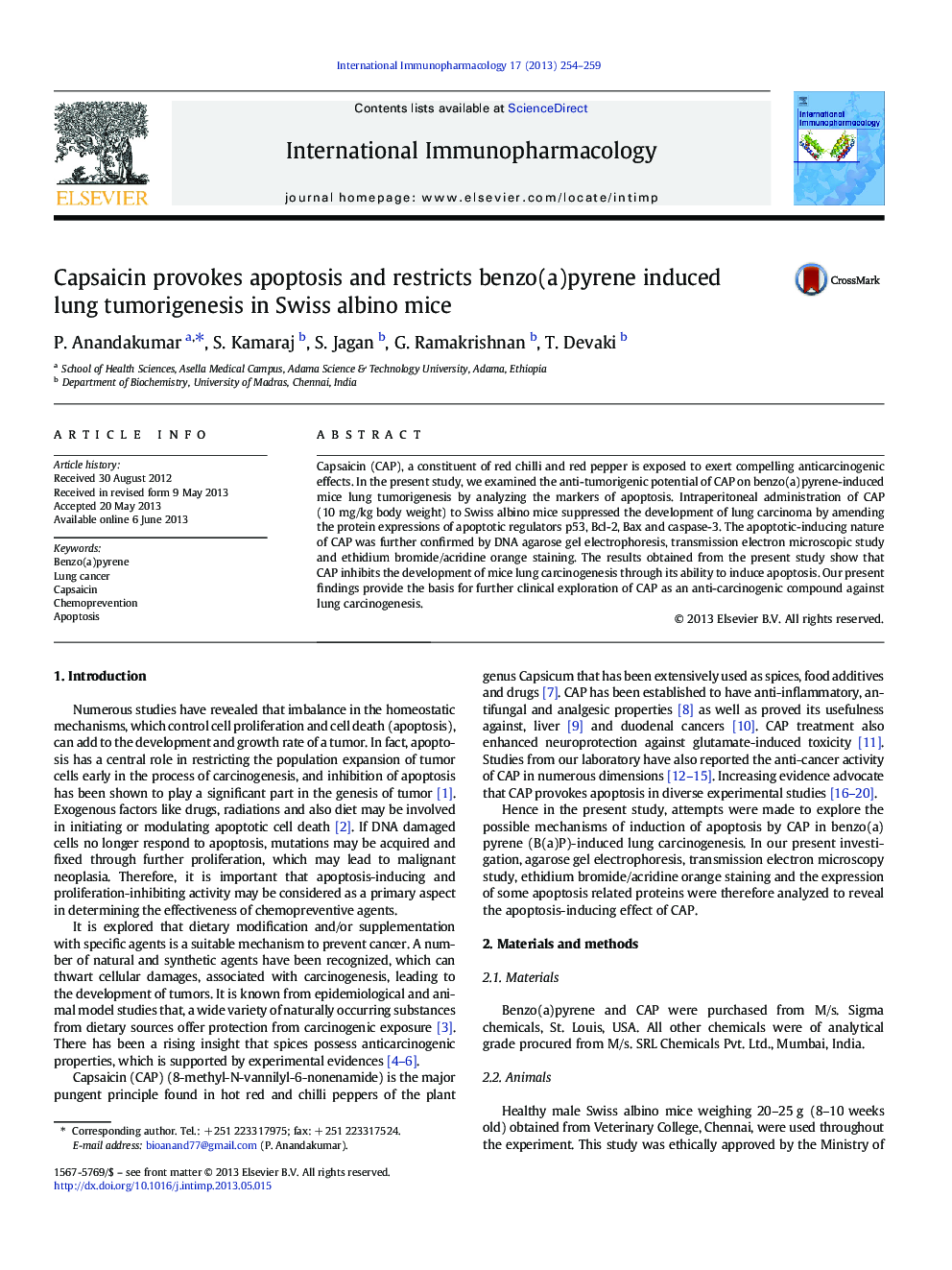| Article ID | Journal | Published Year | Pages | File Type |
|---|---|---|---|---|
| 5833369 | International Immunopharmacology | 2013 | 6 Pages |
Abstract
Capsaicin (CAP), a constituent of red chilli and red pepper is exposed to exert compelling anticarcinogenic effects. In the present study, we examined the anti-tumorigenic potential of CAP on benzo(a)pyrene-induced mice lung tumorigenesis by analyzing the markers of apoptosis. Intraperitoneal administration of CAP (10Â mg/kg body weight) to Swiss albino mice suppressed the development of lung carcinoma by amending the protein expressions of apoptotic regulators p53, Bcl-2, Bax and caspase-3. The apoptotic-inducing nature of CAP was further confirmed by DNA agarose gel electrophoresis, transmission electron microscopic study and ethidium bromide/acridine orange staining. The results obtained from the present study show that CAP inhibits the development of mice lung carcinogenesis through its ability to induce apoptosis. Our present findings provide the basis for further clinical exploration of CAP as an anti-carcinogenic compound against lung carcinogenesis.
Related Topics
Life Sciences
Immunology and Microbiology
Immunology
Authors
P. Anandakumar, S. Kamaraj, S. Jagan, G. Ramakrishnan, T. Devaki,
